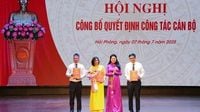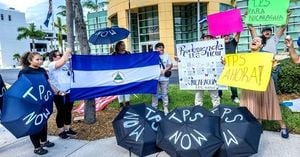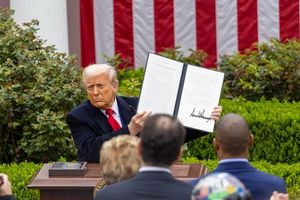On July 7, 2025, in Hanoi, the 28th session of the Central Steering Committee on Anti-Corruption, Waste, and Negativity convened under the leadership of General Secretary To Lam, who also heads the Committee. This pivotal meeting reviewed the Committee's efforts and outcomes during the first half of 2025 and set priorities for the remaining months of the year.
Since the start of 2025, anti-corruption and anti-waste initiatives have been aggressively pursued across all levels of government and the Communist Party. According to official reports, Party committees and inspection bodies disciplined 230 Party organizations and 7,235 Party members during this period. Notably, the Political Bureau, Secretariat, and Central Inspection Committee imposed sanctions on 11 centrally managed officials, underscoring the leadership's commitment to rooting out malfeasance at the highest levels.
Inspection and auditing efforts have been extensive and impactful. Authorities recommended the recovery and financial handling of approximately 9,533 billion Vietnamese dong, alongside the reclamation of 617 hectares of land. Administrative penalties were proposed for 381 collectives and 1,083 individuals. Moreover, 28 cases exhibiting signs of criminal activity were transferred to investigative agencies for further action.
Prosecutors initiated 1,776 new cases involving 4,038 defendants related to corruption, economic crimes, and abuses of power. For cases under the Committee's direct supervision, there were seven concluded investigations covering 127 defendants, five indictments involving 87 defendants, seven first-instance trials with 94 defendants, and nine appellate trials involving 221 defendants. These figures reflect a robust legal response to corruption and related offenses.
Beyond enforcement, the Committee highlighted the importance of legislative and institutional reforms. General Secretary To Lam emphasized completing the review and institutionalization of all anti-corruption, anti-waste, and anti-negativity policies issued since the 13th National Congress. This includes amending critical laws such as the Law on Practicing Thrift and Anti-Waste, the Law on Anti-Corruption, and related statutes. Adjustments to economic and technical standards were also mandated to ensure they remain relevant and effective.
A significant focus was placed on addressing delayed, long-standing, and low-efficiency projects that risk causing financial losses and waste. Specific projects cited include two Central Hospital construction endeavors, renewable energy initiatives, and the tidal flood control project in Ho Chi Minh City. The General Secretary called for clarifying the causes of delays and formulating concrete plans to resolve these issues promptly.
General Secretary To Lam also urged intensifying investigations and expediting the resolution of corruption, waste, and negativity cases under the Committee's watch. The goal is to eliminate backlog cases by the end of the current Party term. Particular attention was directed toward cases involving Thuan An Group, Vietnam Cement Corporation, the Nha Trang Airport project, and the second-phase construction projects of Bach Mai Hospital and Viet Duc Friendship Hospital.
To prevent recurring issues, the Committee stressed increasing inspections, supervision, and audits. This includes monitoring personnel arrangements and the management and use of public finances and assets during and after organizational restructuring, particularly in implementing the two-level local government model. The Committee also called for strengthening provincial-level anti-corruption bodies and functional agencies following recent mergers and consolidations to ensure these entities operate effectively.
At the grassroots level, the Committee pushed for rigorous oversight to prevent corruption, waste, and negativity. It condemned attitudes of dependence, procrastination, and shirking responsibilities that cause administrative delays and waste public resources. Efforts to reform administrative procedures and reduce direct contact between officials and the public were emphasized to minimize opportunities for corruption.
Science, technology, and digital transformation were identified as key tools in this fight. The Committee advocated for building and connecting national databases across ministries, sectors, and localities. This interconnected data system aims to enhance state management efficiency and enable data-driven inspection, supervision, auditing, and early warning of violations.
Asset recovery remains a high priority, with notable progress made in reclaiming illicit gains from corruption cases. The Committee also reported positive developments in anti-corruption and anti-waste efforts at local and grassroots levels. Provincial Steering Committees added 53 new cases to their supervision lists in the first half of 2025. Local authorities disciplined 43 leaders for corruption and negativity, with 21 facing criminal charges. They also prosecuted 416 new cases involving 1,207 defendants.
The Committee agreed to conclude the handling of 10 cases and six incidents that had been resolved in accordance with legal procedures. Simultaneously, it added four new cases and two new incidents to its supervision roster. These include a bribery and asset mismanagement case at Viet Trung Mineral and Metallurgy Company; a forgery and bribery case at TSL Science JSC; a serious accounting violation and fake food production case involving ZHolding’s counterfeit milk; a drug-related case at the Central Institute of Forensic Psychiatry involving multiple offenses including bribery and abuse of power; a suspected forgery and bribery case at Avatek Science and Technology Company; and a suspected bribery case at the Food Safety Department of the Ministry of Health.
Looking ahead, the Committee is charged with maintaining the momentum of anti-corruption and anti-waste campaigns, ensuring that these efforts continue decisively and effectively throughout the remainder of 2025. A comprehensive review of anti-corruption and anti-waste work from grassroots Party cells is planned to culminate in a broad political campaign across the Party and society. This initiative aims to refine and enhance anti-corruption policies in preparation for the 14th National Congress, ensuring that Vietnam’s governance continues to evolve in line with the country’s development needs.




